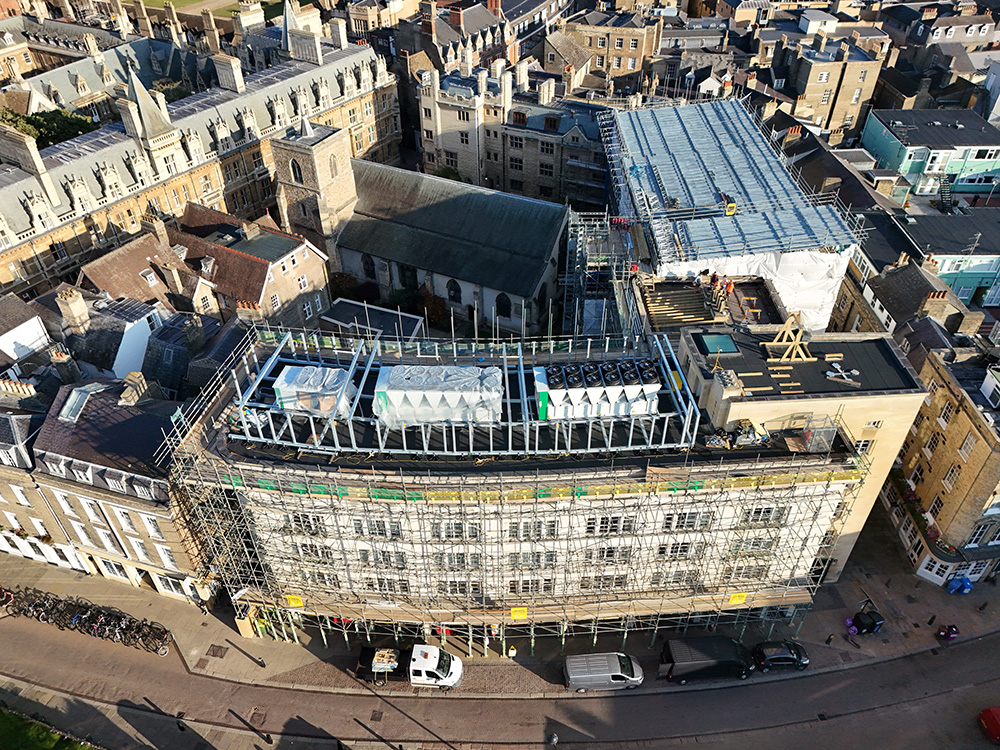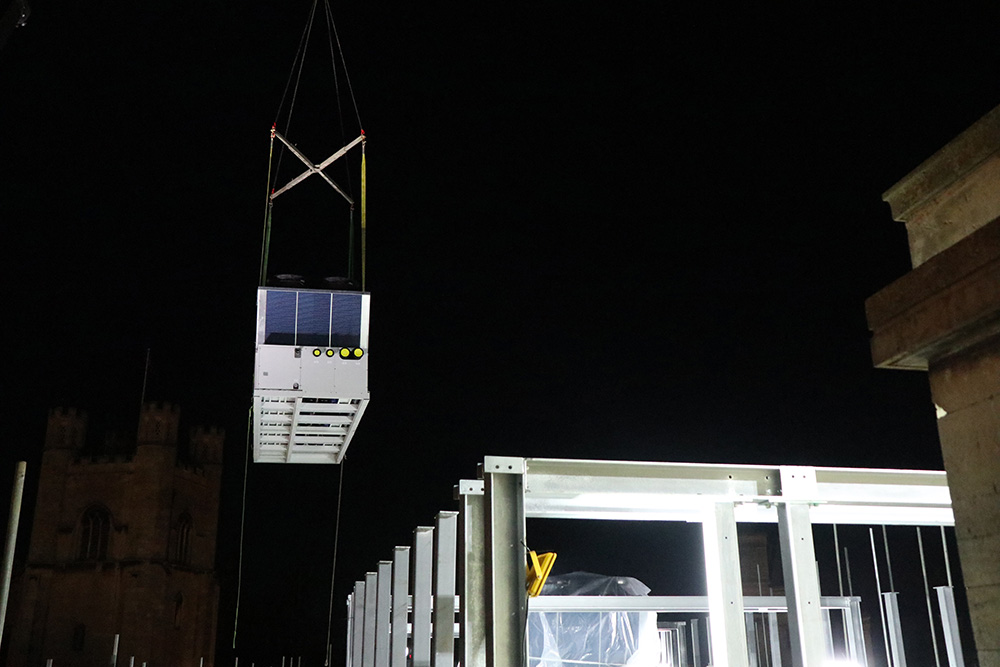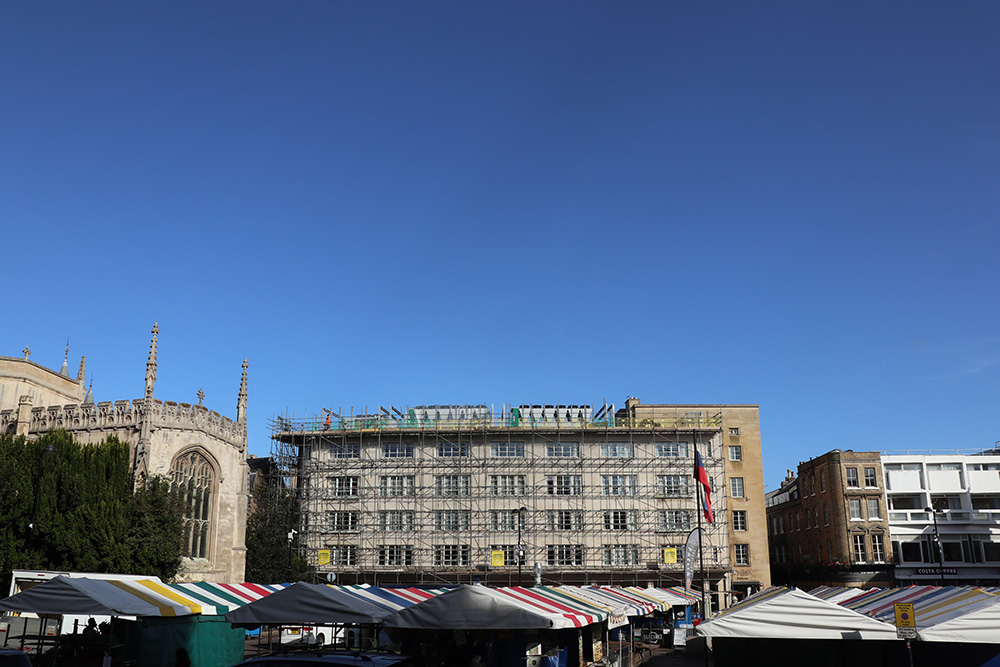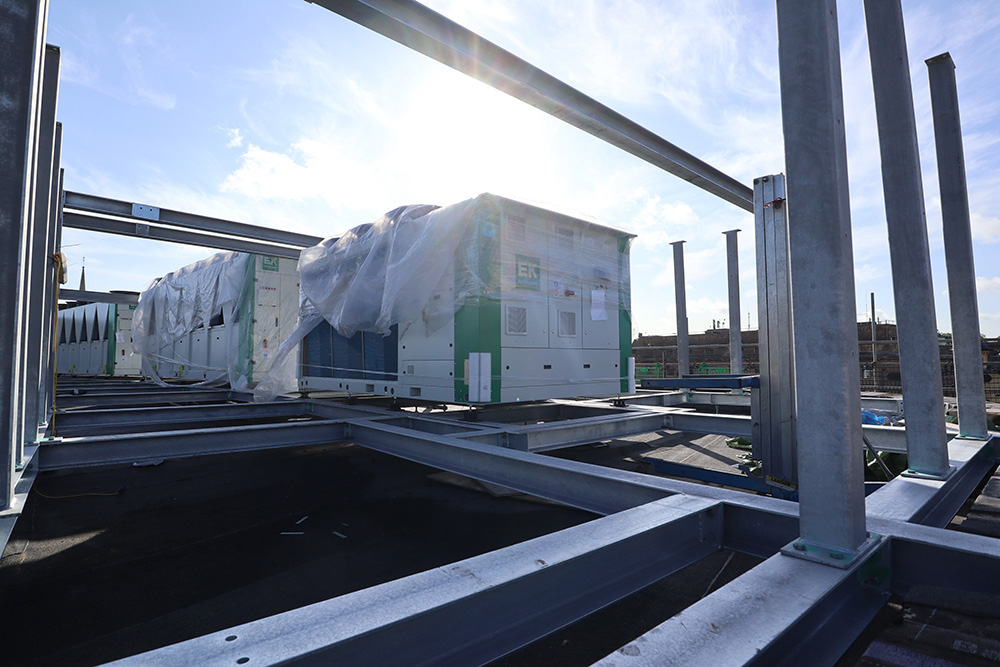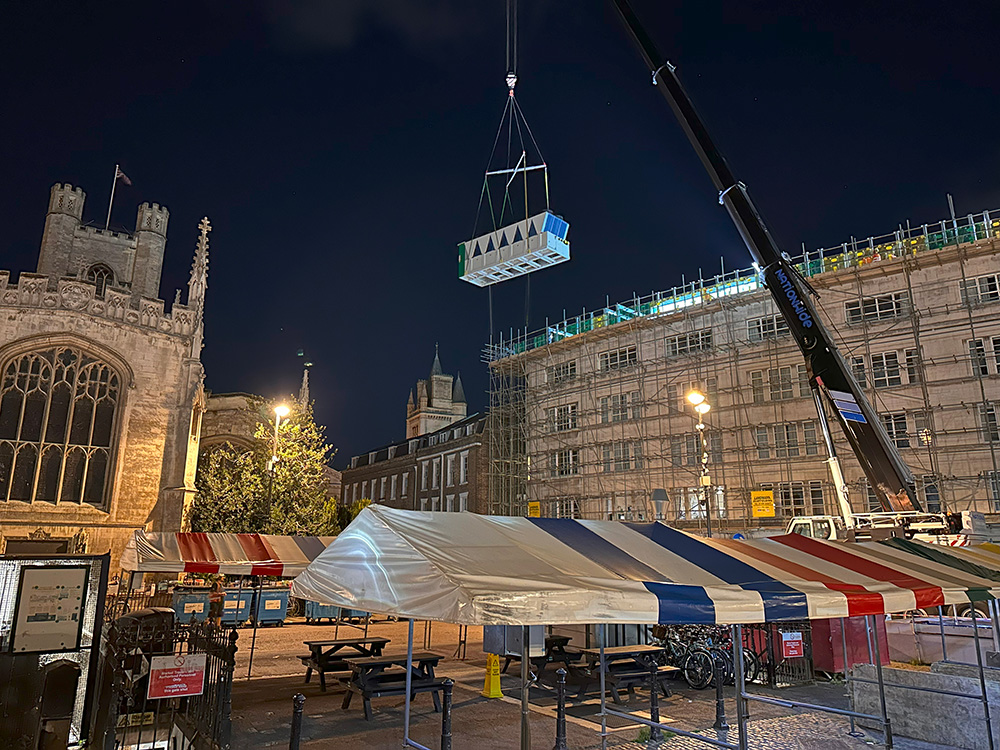
Date
Author
Liz Page
Cambridge’s Gonville & Caius College Marks Decarbonisation Milestone
Late last night, Cambridge’s historic Gonville & Caius College reached a major milestone in its ambitious £10 million decarbonisation project as a giant crane lifted three large Air Source Heat Pump (ASHP) onto the roof. The operation marks a crucial step in the College’s plan to eliminate fossil fuel heating from its Old Courts site. The three ASHP units weigh approximately 20 tonnes. Two large units (each with an operating weight of around 7,000kg) and a third smaller unit was carefully hoisted into place on top of the College’s Murray Easton Building, a Grade II listed structure overlooking Cambridge’s Market Square.
The complex scheme, one of the most extensive decarbonisation projects undertaken by any Cambridge college to date, is supported by the UK Government’s Public Sector Decarbonisation Scheme (Phase 3c) via a grant administered by Salix Finance. The overall project is scheduled for completion by summer 2026.
Dr Jim Hambleton, a Gonville & Caius College Fellow and Chair of the Decarbonisation Implementation Committee, said: “The placing of these huge Air Source Heat Pumps was an exhilarating moment in the long history of the College. While there is much yet to be done, this is a key landmark which we should celebrate.
“This project has been a partnership between staff, academics and external consultants, all experts in their fields, and I’d like to express my gratitude to everyone for this major step.”
As Project Managers and lead Architects on the project, David Hills, director at rhp, said: “It is a privilege to work with a client so committed to carbon saving, alongside my colleagues at rhp, technical consultants Ridge, Structural Engineers AFP, Cocksedge’s construction team and many others. It is not often we get to combine our interests in state-of-the-art sustainable technology and Grade II Listed Buildings to such a positive purpose.”
We have worked closely with the College and a multidisciplinary team to integrate state-of-the-art sustainable technology into a sensitive historic setting. The design and engineering team, including technical consultants Ridge and structural engineers AFP, developed an innovative solution to position the large heat pump units on the roof of an existing building. This approach made optimal use of available space in the dense city-centre location. Cocksedge, the lead contractor, coordinated the highly complex operation. Successfully craning these heavy units into place marks a major logistical milestone for the project.
Tom Foggin, director and sustainability lead at rhp, contextualised the effort at Gonville & Caius within our broader drive for sustainability in the built environment. “Our project for Gonville & Caius reflects rhp’s commitment to supporting clients on their journey towards a more sustainable low-carbon future. This builds on our experience of working with college and university estates to reduce the energy demand of their existing and new buildings, like our award-winning Passivhaus Certified building for Lucy Cavendish College which has one of the lowest energy demands for student accommodation in the country. We are privileged to work with such informed clients as Gonville & Caius College, and thankful for their leadership in working towards a lower carbon built environment” said Tom Foggin.
Completed in 2022, our Passivhaus student accommodation for Lucy Cavendish College set a clear benchmark for ultra-low energy use and won multiple awards for sustainability and design. At Gonville & Caius, by switching from gas to air-source heat pumps and focusing on fabric upgrades, we are respecting the architecture while reducing carbon and running costs. Over time, we are helping universities turn historic estates into future-ready campuses that work better for students, staff, and the planet.

